Oral Cancer: Facts, Signs, and Early Detection
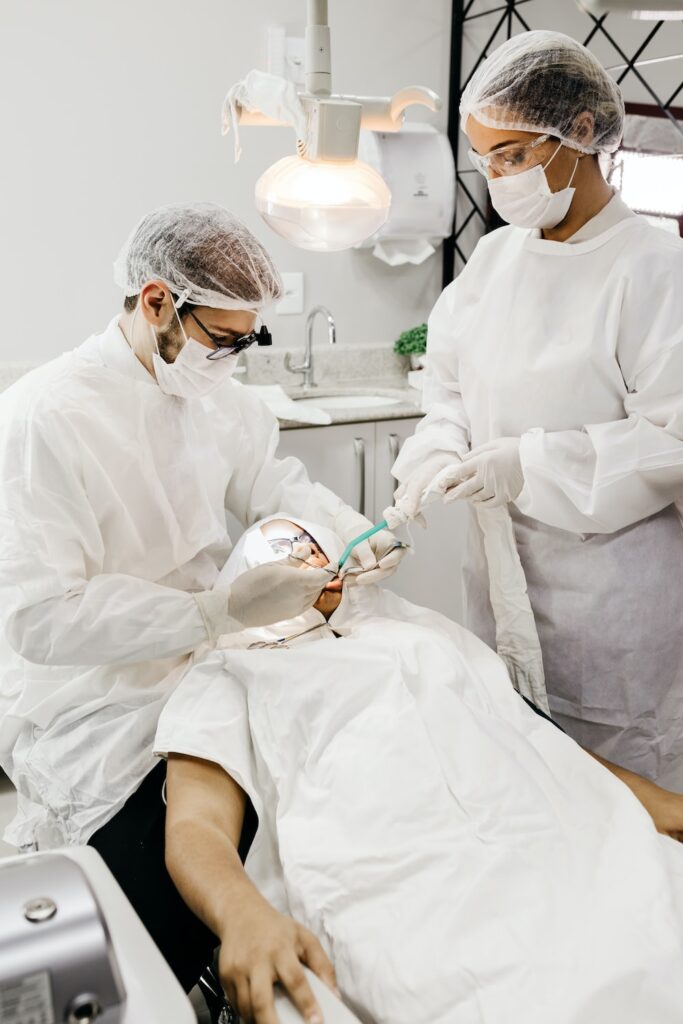
In this blog post, we will explore the alarming rise in oral cancer cases, its devastating impact on individuals and families, and the importance of early detection. By shedding light on the facts and signs of oral cancer, we aim to empower readers with valuable knowledge that can potentially save lives. This blog post is optimized for search engines, ensuring that it reaches a wider audience seeking information on oral cancer. So, let’s delve into the world of oral cancer and learn how to recognize its signs before it’s too late. Introduction to Oral Cancer Oral cancer is a life-threatening condition that affects the mouth, tongue, lips, and throat. It involves the uncontrolled growth of abnormal cells in these areas, leading to the formation of tumors. Oral cancer is a serious public health concern affecting millions of people worldwide. According to recent statistics of cancer.net, the incidence of oral cancer has been steadily increasing over the past few decades. In this section, we will delve deeper into the prevalence and risk factors associated with oral cancer. Oral Cancer Statistics Globally, approximately 354,864 cases of oral cancer were reported in 2020. Oral cancer is more common in men than women, with a male-to-female ratio of 2:1. The highest incidence rates of oral cancer are found in Southeast Asia and Central/Eastern Europe. In the United States alone, an estimated 54,010 new cases of oral cancer will be diagnosed in 2021. Risk Factors for Oral Cancer Tobacco Use: Smoking cigarettes, cigars, pipes, or using smokeless tobacco significantly increases the risk of developing oral cancer. Heavy Alcohol Consumption: Excessive alcohol consumption, particularly when combined with tobacco use, poses a substantial risk. Human Papillomavirus (HPV) Infection: Certain strains of HPV, especially HPV16 and HPV18, have been linked to oral cancer. Sun Exposure: Prolonged exposure to the sun without adequate protection increases the risk of lip cancer. Poor Oral Hygiene: Neglecting regular oral care can contribute to the development of oral cancer. Diet: A diet lacking in fruits and vegetables may increase the risk of oral cancer. Signs and Symptoms of Oral Cancer Early detection is crucial in successfully treating oral cancer. Recognizing the signs and symptoms can lead to early intervention and improved outcomes for patients. In this section, we will discuss the common signs and symptoms of oral cancer that individuals should be aware of: Persistent Mouth Sores: Any sore or ulcer that does not heal within two weeks should be evaluated by a healthcare professional. Red or White Patches: The presence of red or white patches on the tongue, tonsils, or lining of the mouth could be an indication of oral cancer. Unexplained Bleeding: Unexplained bleeding in the mouth, throat, or gums should not be ignored. Difficulty Swallowing or Chewing: Difficulty in swallowing or chewing food may signify a tumor obstructing the oral cavity or throat. Chronic Sore Throat or Hoarseness: A persistent sore throat or hoarseness that lasts for more than two weeks should be investigated. Numbness or Pain: Numbness or pain in any area of the mouth, face, or neck could be a symptom of oral cancer. Loose Teeth: Oral cancer can cause teeth to become loose without any apparent dental reason. Changes in Voice: Noticeable changes in voice quality or speech patterns may indicate underlying issues. It’s important to note that these signs and symptoms can also be associated with less severe conditions. However, it is always advisable to consult a healthcare professional for proper evaluation and diagnosis. The Role of Dentists in Early Detection Dentists play a crucial role in identifying oral cancer at its early stages. As part of routine dental check-ups, dentists perform thorough oral examinations to check for any abnormalities. They are trained to recognize potential signs of oral cancer and can refer patients for further evaluation if necessary. During a dental examination for oral cancer detection, dentists may perform the following: Visual Inspection: Dentists examine the mouth, lips, tongue, cheeks, gums, and throat for any visible signs of oral cancer. Physical Palpation: Dentists gently feel the tissues inside the mouth and neck to detect any lumps or irregularities. Biopsy: If suspicious lesions are identified, dentists may perform a biopsy to confirm whether they are cancerous. Regular dental visits are essential not only for maintaining good oral health but also for timely detection of potentially life-threatening conditions like oral cancer. Oral Cancer Screening Guidelines To ensure early detection and prompt treatment of oral cancer, various organizations have established screening guidelines for both healthcare professionals and individuals. Adhering to these guidelines can significantly reduce the morbidity and mortality associated with oral cancer. Here are some key recommendations: American Cancer Society (ACS): The ACS advises that adults undergo regular oral examinations as part of their general healthcare routine. The frequency may vary based on individual risk factors and dentist recommendations. Dental Associations: Many dental associations recommend that individuals receive an annual oral cancer screening as part of their routine dental check-up. Self-Examination: Individuals should also perform self-examinations at home to monitor any changes in their mouth or throat. Consultation with a healthcare professional is crucial if any concerning signs or symptoms are noticed. Remember, early detection through regular screenings can significantly improve the chances of successful treatment and cure. Diagnostic Tests for Oral Cancer When suspicious lesions are identified during an examination or screening, further diagnostic tests may be required to confirm the presence of oral cancer. These tests help healthcare professionals determine the stage and extent of the disease, guiding treatment decisions. Some commonly used diagnostic tests include: Biopsy: A biopsy involves removing a small sample of tissue from the suspicious area for laboratory analysis. It is considered the gold standard for diagnosing oral cancer. Imaging Tests: Imaging techniques like X-rays, CT scans, MRI scans, or PET scans provide detailed images of the affected areas and help determine if the cancer has spread. Endoscopy: An endoscope is used to examine the throat and other internal structures for signs of cancerous growths. Blood Tests: Blood tests may
Time for a Dentist Change? Recognizing 5 Signs You Shouldn’t Ignore
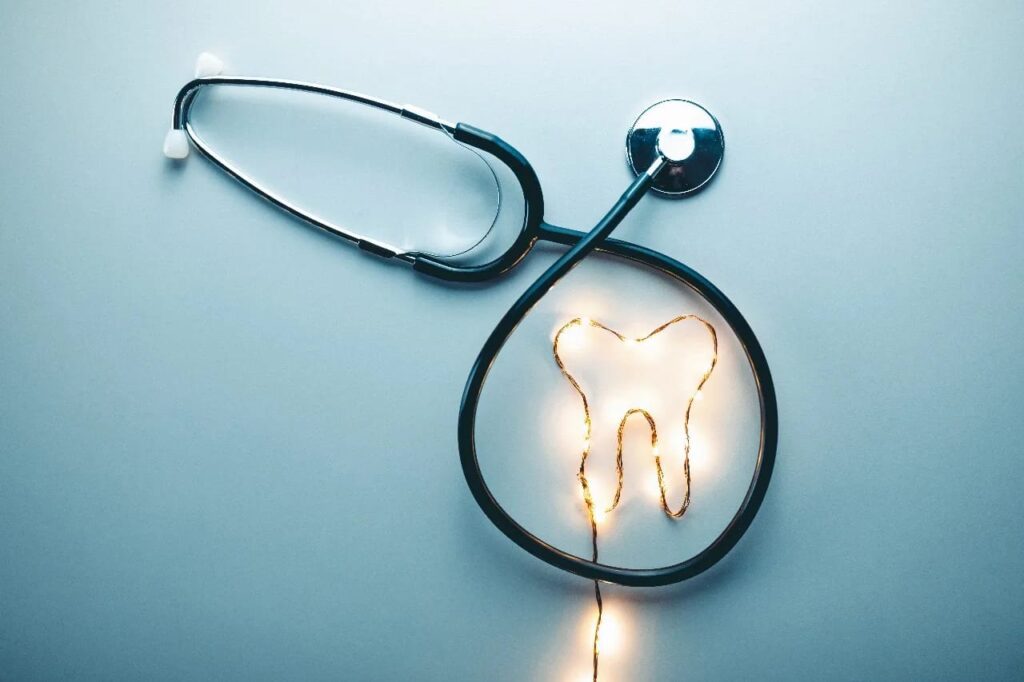
A dentist specializes in oral health, providing services ranging from routine cleanings to complex procedures. They play a critical role in dental care and overall health maintenance. Maintaining oral health is vital for overall well-being, and dentists are the professionals entrusted with this task. These medical experts diagnose, treat, and manage your entire oral healthcare needs, including gum care, root canals, fillings, crowns, veneers, bridges, and preventive education. Regular visits to a dentist not only keep your teeth and gums in top shape but also serve as a frontline defense against more serious health issues that can manifest in the mouth. As dentists use the latest in dental technology and techniques, they can provide a more comfortable and efficient experience for their patients. Dentists require a strong foundation in biology, chemistry, and anatomy, coupled with advanced training in dental medicine to ensure the highest level of care. The Importance Of Regular Dental Checkups Visiting the dentist regularly is not just about getting your teeth cleaned. It’s a critical part of maintaining your overall health. Regular dental checkups are vital for preventative care and the early detection of oral health issues. By keeping up with regular appointments, you can ensure a healthy mouth and a beautiful smile. Preventative Care Preventative dental care is crucial to maintaining a healthy smile. Regular checkups can save you time, money, and discomfort in the long run. Each visit typically includes a thorough cleaning to remove plaque and tartar buildup that daily brushing and flossing might miss. Professional teeth cleaning to eliminate tartar, which can cause tooth decay and gum disease if left untreated. Fluoride treatments strengthen the enamel and make your teeth more resistant to decay. Dental sealants may be applied during visits to fill in grooves on the chewing surfaces of the teeth to prevent food particles from getting trapped and causing cavities. Regular checkups also include a comprehensive examination of your mouth, not just to keep your teeth and gums healthy, but also to screen for any signs that may point towards other health issues. Early Detection Of Oral Health Issues Early detection is key in managing any form of disease, and this applies to oral health as well. During a dental checkup, dentists look for early signs of problems such as: Teeth grinding can lead to other issues such as TMJ or worn-down teeth. Early signs of gum disease, could lead to tooth loss and affect overall health if not treated. Signs of oral cancer are critical to identify and treat as early as possible. Dentists use a variety of tools and technologies to detect these issues. Digital X-rays, for example, can reveal early tooth decay, impacted teeth, abscesses, and jawbone damage. If these conditions are caught early, treatments will be less invasive and more successful. Remember – regular dental checkups are a cornerstone of a proactive approach to dental health. They are the first line of defense against numerous oral health concerns and can keep minor issues from becoming major health risks. Finding A Qualified Dentist in Scarborough Finding a qualified dentist in Scarborough can often feel like searching for a needle in a haystack. Your dental health is crucial, and selecting the right professional to entrust with your care is paramount. It’s not simply about the nearest or cheapest option – you want to ensure that your dentist possesses the requisite skills, knowledge, and experience to provide the best possible care. How do you sift through the myriad options and find that perfect dental healthcare partner? Importance Of Credentials And Experience Confirming credentials is the foundation of trust in the dentist-patient relationship. A qualified dentist should have a degree from an accredited dental school and hold current licensure. Look for board certifications or advanced training, which indicate a commitment to excellence in the field. But academic qualifications alone don’t paint the full picture – practical experience is a critical factor. A dentist with years of practice will not only have refined technical skills but also a deeper understanding of patient care, allowing them to deal more efficiently with a variety of dental issues. Recommendations And Online Reviews The modern patient’s journey often begins online. This is where patient recommendations and online reviews shine as a compass to guide you. A dentist with high ratings and positive feedback is a reassuring sign of reliable patient satisfaction. As part of your research: Examine ratings on multiple platforms such as their practice website, social media, and dedicated review sites. Read through the comments to gain insight into the overall patient experience, from customer service to treatment outcomes. Consider the number and consistency of reviews – a higher number of reviews can provide a more accurate picture. But remember, not all reviews may be genuine. It’s important to apply critical thinking and look for patterns within the feedback provided. The Role Of A Dentist In Maintaining Oral Health The role of a dentist is pivotal in ensuring the health and functionality of one of the most important parts of the body: the mouth. Comprehensive oral health directly impacts overall well-being, so a dentist is much more than just a tooth expert; they are guardians of full-body health. By diagnosing, treating, and managing your entire oral healthcare needs – from gum care, root canals, fillings, crowns, and veneers, to preventive education – dentists provide the essential service of keeping your smile both beautiful and healthy. Professional Cleanings And Oral Exams Regular professional cleanings and oral exams are the bedrock of maintaining oral health. During these sessions: Dental plaque and tartar that cannot be removed by brushing and flossing alone are eliminated, preventing tooth decay and gum disease. Teeth receive a thorough polish, which helps remove stains and leaves the mouth feeling refreshed. Oral exams allow dentists to catch early signs of issues such as cavities, gum disease, and even oral cancer. Identifying problems early means simpler and
Comprehensive Guide to Dealing with Dental Emergencies at Home

Dorset Dental provides urgent dental care services for the immediate treatment of dental emergencies in Scarborough. With a team of experienced dental professionals, they offer prompt and effective solutions to alleviate pain and address urgent oral health issues, ensuring patients receive timely and appropriate care. In addition to emergency dental treatments in Scarborough, Dorset Dental also offers a range of preventive, restorative, and cosmetic dental services to maintain long-term oral health and enhance the appearance of your smile. Whether you have a severe toothache, broken tooth, or any other dental emergency, Dorset Dental is committed to providing quality dental care when you need it most. Signs And Symptoms of Dental Emergencies Recognizing the signs and symptoms is crucial for timely intervention and treatment of dental emergencies. Ignoring these signals can lead to further complications and potential long-term damage. If you are experiencing any of the following signs, it is important to seek immediate dental attention. Severe toothache that doesn’t subside A severe and persistent toothache is often an indication of an underlying dental emergency. If the pain becomes unbearable and does not subside even after taking over-the-counter pain medication, it is essential to schedule an appointment with a dentist as soon as possible. Ignoring the pain could potentially lead to more serious issues such as tooth infections or abscesses. Swelling in the gums or jaw Swelling in the gums or jaw can be a sign of various dental emergencies. This swelling may occur due to infections, gum disease, or even a dental abscess. If you notice any abnormal swelling that is causing discomfort or interfering with your ability to eat or speak, it is important to seek immediate dental care. Ignoring the swelling can worsen the condition and potentially lead to the spread of infection. Broken or chipped tooth A broken or chipped tooth can not only cause pain but also affect the overall appearance and functionality of your smile. Whether it’s a result of a sports injury, an accident, or biting down on a hard object, seeking prompt dental treatment is essential. Dentists can evaluate the extent of the damage and recommend appropriate treatment options to restore the tooth’s structure and prevent further complications. Knocked-out tooth If a tooth gets knocked out due to trauma or injury, it requires immediate attention to increase the chances of successful re-implantation. It is crucial to handle the tooth carefully, avoiding touching the root, and rinsing it gently with water if it’s dirty. Placing the tooth back in its socket or storing it in milk or saline solution can help preserve the tooth until you reach the dentist. Time is of the essence, so it’s important to seek dental care within 30 minutes for the best chance of saving the tooth. In case of any dental emergency, reaching out to an emergency dentist in Scarborough ensures prompt and expert care. Keeping calm, following proper steps, and seeking immediate attention can help prevent further damage and resolve the issue effectively. Immediate Actions for Dental Emergencies Dental emergencies can happen at any time and can be quite distressing. Whether it’s a severe toothache, a knocked-out tooth, or a broken tooth, taking immediate action is crucial in these situations. Acting swiftly can make a significant difference in preventing further damage and relieving pain. Here are some immediate actions you can take for dental emergencies: Rinse the mouth with warm water One of the first things you should do when faced with a dental emergency is to rinse your mouth with warm water. This helps remove any debris or foreign particles that may be causing irritation or discomfort. Gently swish the water around your mouth, making sure to reach all areas, including the affected tooth or area. Remember not to use hot water, as it may cause additional pain or thermal damage. Apply a cold compress to reduce swelling If you’re experiencing swelling or facial trauma due to a dental emergency, applying a cold compress can help alleviate the inflammation. Simply take a clean cloth or ice pack and place it on the affected area for about 15 minutes. The cold temperature helps constrict blood vessels, reducing swelling and providing temporary relief. Repeat this process every few hours as needed, but always make sure to wrap the cold compress in a towel or cloth to avoid direct contact with the skin. Save any knocked-out tooth If a tooth has been knocked out due to an accident or injury, you should act quickly to increase the chances of saving it. Carefully pick up the tooth by the crown (the top part) and try not to touch the roots. If the tooth is dirty, you can rinse it with milk or saliva, but avoid scrubbing or using any cleaning agents. Then, place the tooth back into its socket if possible. If this isn’t possible, keep the tooth moist by placing it in a container with milk or your saliva. It’s essential to seek immediate dental care in order to have the best chance of successfully reattaching the tooth. Use dental wax to cover a broken or sharp tooth In the event of a broken or sharp tooth, you can use dental wax to cover and protect the affected area temporarily. Dental wax is a safe and easily accessible material that can be obtained from a local pharmacy or dental clinic. Simply take a small piece of dental wax and mold it over the broken or sharp part of the tooth, creating a barrier between the tooth and your mouth. This helps prevent further injury and discomfort until you can see a dentist for a more permanent solution. Seeking Emergency Dental Care in Scarborough Experiencing a dental emergency can be a stressful and painful situation. Whether it’s a severe toothache, a knocked-out tooth, or a broken crown, getting immediate dental care can make a significant difference in alleviating
FAQS ABOUT TEETH WHITENING
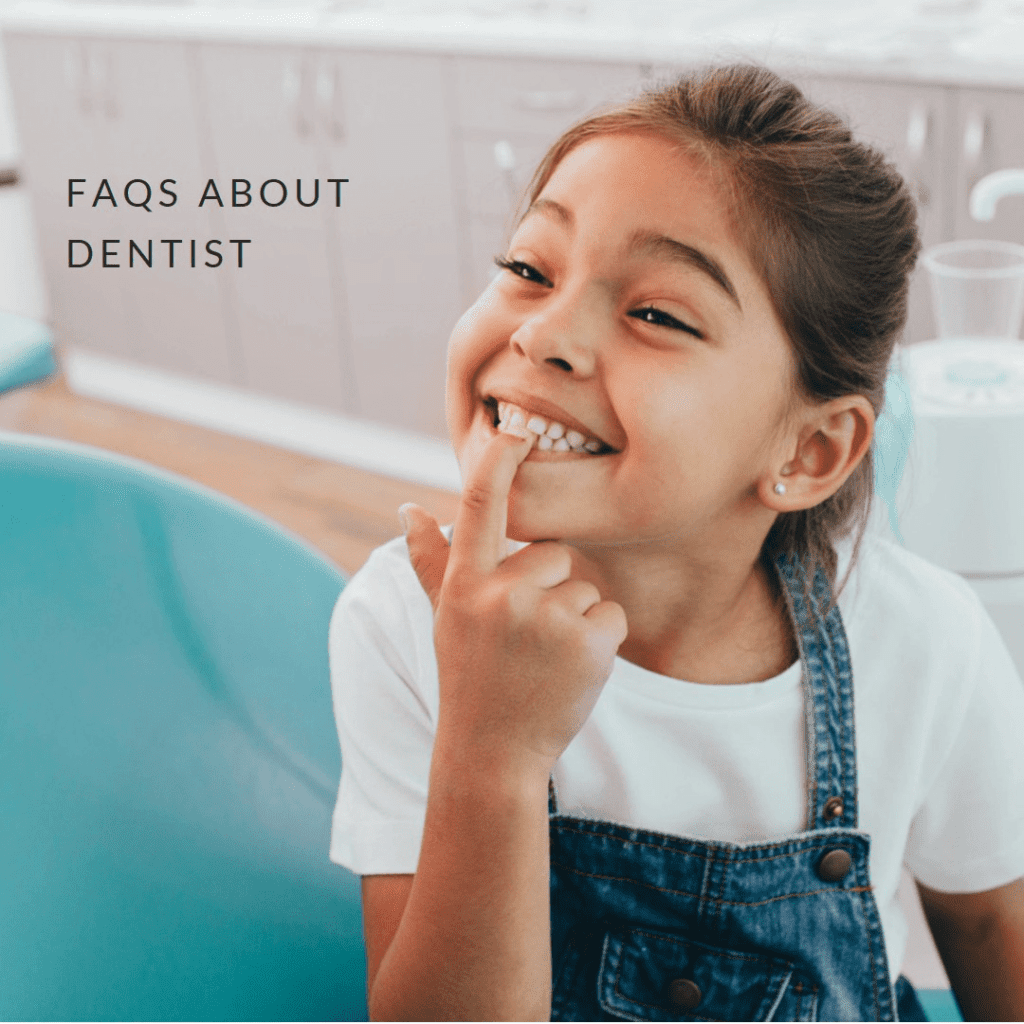
Your go-to resource for all the FAQs about teeth whitening in Scarborough. From cost to process, we’ve got all your questions covered.
Top 5 Benefits of Professional Teeth Whitening in Scarborough
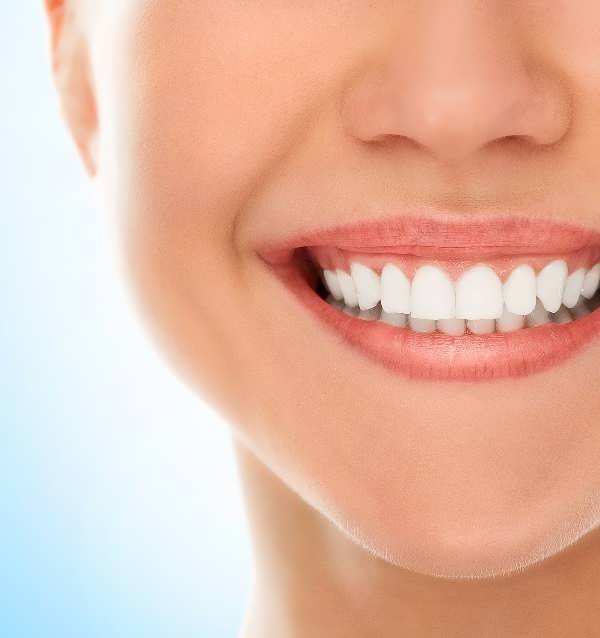
Discover the transformative power of a bright, white smile with professional teeth whitening at Dorset Dental in Scarborough. Explore the multiple benefits of opting for a professional treatment over at-home kits
How Do I Know My Teeth Are Healthy? 5 Signs of a Healthy Mouth
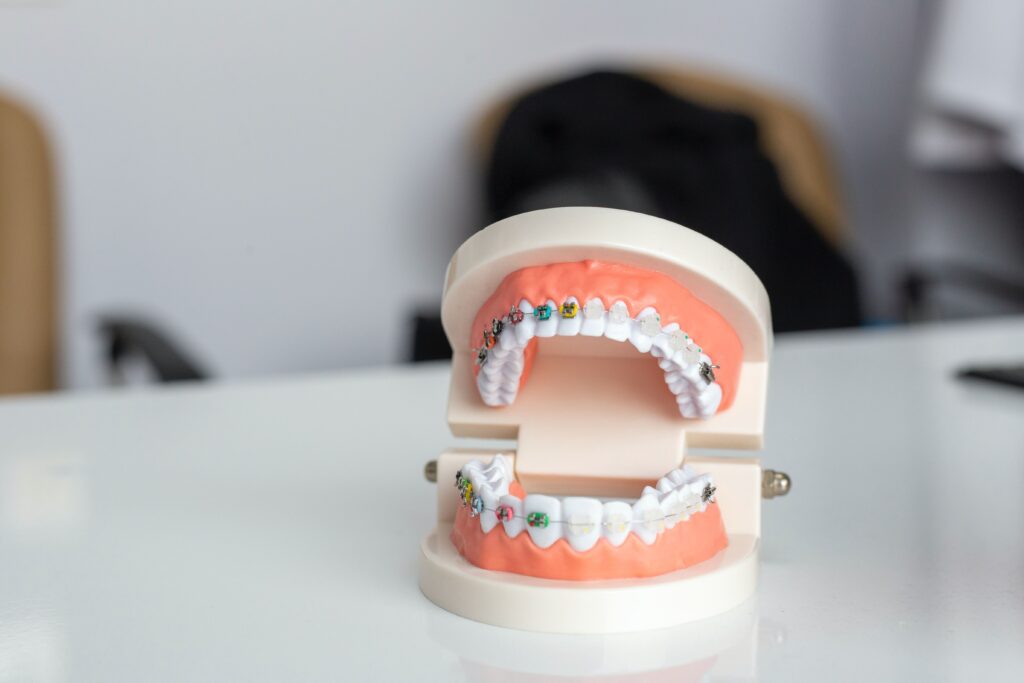
Dorset Dental Blogs How Do I Know My Teeth Are Healthy? 5 Signs of a Healthy Mouth Dorset Dental – May 15 ,2023 Do you know if your teeth are healthy? Many people don’t realize that there are a few simple signs that can indicate whether or not your mouth is healthy. In this blog post, we will discuss 5 signs of a healthy mouth. Table of Contents 5 Signs Your Teeth Are Healthy 1. Bright, White Enamel Healthy teeth boast a bright, white enamel free from stains or discolouration. Though teeth colour may vary over time, a consistent white smile is a good indication that your teeth are in top shape. 2. Smooth, Intact Surfaces Run your tongue over your teeth. If they feel smooth, with no rough spots or chips, it’s a sign of good dental health. Surfaces of your teeth should be even and free from damage. 3. Firm, Pink Gums Healthy gums are pink and firm, without swelling or bleeding when you brush and floss. Pay attention to your gums and consult your dentist if you notice any changes, such as redness or swollen gums. 4. Fresh Breath A neutral smell and consistently fresh breath indicate that your oral hygiene routine is effective. Chronic bad breath could be a sign of dental issues, such as tooth decay or gum disease. 5. No Sensitivity to Hot or Cold Foods If you can comfortably enjoy hot or cold foods without experiencing sensitivity or pain, it’s another sign of healthy teeth and gums. 3 Ways to Check for a Healthy Mouth 1. Maintain a Regular Dental Hygiene Routine Brush your teeth at least twice a day using a soft-bristled toothbrush and fluoride toothpaste. Floss daily to remove plaque and food particles stuck between your teeth. 2. Visit Your Dentist Regularly Schedule routine dental check-ups at least twice a year or as recommended by your dentist. Regular dental visits help identify and address dental problems early on, preventing future dental issues. 3. Keep an Eye on Your Overall Health Your overall health can impact your oral health. Pay attention to changes in your body, such as diabetes or hormonal imbalances, as they can affect your teeth and gums. Oral Hygiene Tips for Healthy Teeth and Gums 1. Use Proper Brushing Techniques Brush your teeth with gentle, circular motions for at least two minutes. Ensure that you clean all surfaces of your teeth, including the hard-to-reach areas. 2. Floss Regularly Flossing removes plaque and debris from between your teeth, preventing gum disease and cavities. Use a gentle sawing motion, curving the floss around each tooth. 3. Visit Your Dental Hygienist Schedule regular cleanings with your dental hygienist to remove plaque and tartar buildup that brushing and flossing might miss. They can also provide personalized recommendations for maintaining healthy teeth and gums. How to Keep Your Teeth and Gums Healthy 1. Adopt a Balanced Diet A balanced diet rich in calcium, phosphorus, and vitamin D promotes strong teeth and healthy gums. Crunchy fruits and vegetables help clean your teeth naturally, while vitamin C-rich foods support gum health. 2. Avoid Sugary and Acidic Foods Limit your intake of sugary and acidic foods and drinks, as they can lead to tooth decay and enamel erosion. Sticky foods, in particular, can cling to teeth and increase the risk of cavities. 3. Stay Hydrated Drinking water helps wash away food particles, neutralizes acids, and keeps your mouth moist. A well-hydrated mouth promotes the production of saliva, which is essential for maintaining a healthy oral environment. 4. Don’t Neglect Your Tongue Clean your tongue daily using a tongue scraper or your toothbrush. Removing bacteria from your tongue can help prevent bad breath and improve overall oral hygiene. Common Dental Problems and How to Address Them Cavities: The Enemy of Healthy Teeth Prevention: Brush and floss regularly, avoid sugary snacks, and visit your dentist for check-ups. Treatment: Dentists can treat cavities with fillings, crowns, or, in severe cases, root canals. Gum Disease: A Threat to Teeth and Gums Prevention: Practice good oral hygiene and schedule regular dental cleanings to prevent gum disease. Treatment: Early stages of gum disease can be reversed with improved oral care, while advanced stages may require professional intervention. Tooth Sensitivity: Don’t Let It Get the Best of You Prevention: Use a toothpaste designed for sensitive teeth, avoid highly acidic foods, and maintain proper oral hygiene. Treatment: Consult your dentist for personalized recommendations to address tooth sensitivity. Are Yellow Teeth Healthy? While yellow teeth may not be as visually appealing as a bright, white smile, they can still be healthy. The natural colour r of teeth varies and can be influenced by factors such as genetics, age, and certain foods or drinks. Discolouration might not necessarily indicate poor oral health. However, maintaining good oral hygiene and regular dental check-ups are crucial for ensuring your teeth are in top condition, regardless of their colour. Top causes for yellow teeth include: Genetics: Some people naturally have a slightly yellow hue to their teeth due to genetic factors. Aging: Over time, the outer enamel layer thins, revealing the yellowish dentin beneath. Diet: Consuming foods and beverages with strong pigments, such as coffee, tea, red wine, and berries, can stain teeth over time. Smoking: Tobacco products can cause yellow or brown stains on teeth. Poor oral hygiene: Inadequate brushing and flossing can lead to plaque and tartar buildup, which can contribute to discoloration. Medications: Certain medications, like tetracycline antibiotics, can cause teeth to become discolored. Key Takeaways Signs of healthy teeth and gums: Bright, white, and smooth teeth Pink and firm gums Fresh and odorless breath Teeth that are not sensitive to hot or cold foods Tips for maintaining healthy teeth and gums: Brush your teeth twice a day Floss once a day Visit your dentist for regular checkups Eat a balanced diet that includes plenty of fruits, vegetables, and whole grains Avoid sugary drinks and foods Stay hydrated by drinking plenty of water Quit smoking FAQs About
Signs You Need Dental Care Immediately
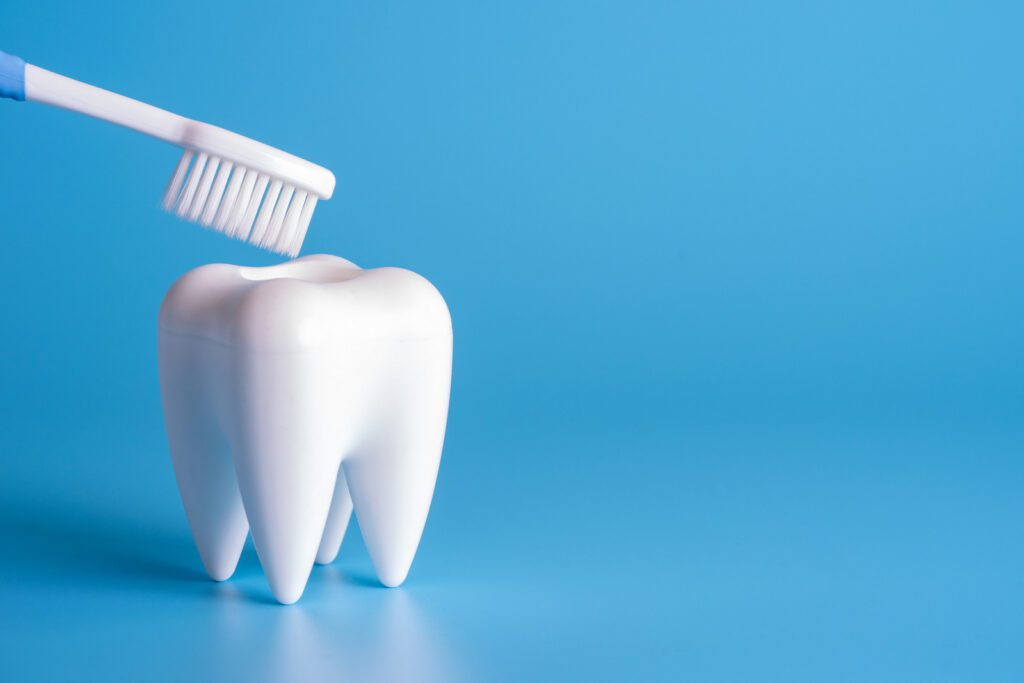
Dorset Dental Blogs Dorset Dental Blogs Is your Tooth Hurting? Dorset Dental – April 27,2023 Say goodbye to toothache pain and visit our office today, so you can get back to enjoying life. Taking Care Of Your Teeth For Life Visiting the dentist can be overwhelming for some, frightening for others, and can seem like a general inconvenience. There are time and money factors that also usually sway our decisions. However, ignoring oral health issues can lead to needing the services of an emergency dentist in Scarborough urgently. Without the expertise and information provided by a dentist, there is no way to assess the severity of a dental problem. Brushing off a toothache as just sensitive teeth or bleeding gums as brushing too hard may lead to serious issues in the future. With this in mind, here are the warning signs to take note of and then book an emergency appointment right away, if needed. Visiting a dentist can seem like more of a hassle than a necessity. However, the benefits do outweigh your discomfort because issues can be quickly addressed before they become problematic. Furthermore, there is no reason to suffer from ongoing pain and swelling. Ignoring these signs can lead to worsening overall health and is simply not worth it Dorset Dental Tweet The Persistent Toothache We often make excuses for toothaches, from the weather, feeling physically unwell, or eating overly cold or hot foods. However, a persistent toothache that does not seem to go away for weeks on end is a sign that there may be an underlying issue. Cavities could deteriorate, nerves can be infected, and abscesses may form. The Chipped Tooth Accidents happen! A fall here or scuffle there can lead to chipped and cracked teeth. Initially, you may not think much of your issue, but broken teeth are the ideal environment for decay and can result in future root canals or even extraction later on. Common types of Tooth Problems for Adults The Growing Abscess Abscesses can form for several reasons; however, it is important to visit a dentist at the first sign of one. They can be filled with harmful bacteria and pus, which can start spreading. This can be detrimental to all your teeth and even compromise your jaw bone in severe cases. The Damaged Filling Unfortunately, crowns and fillings are susceptible to damage over time too. Ignoring the grainy textures or broken pieces in your mouth may seem insignificant now. But with time, this will worsen, resulting in actual decay to the remaining tooth and surrounding teeth. Visiting a dentist can seem like more of a hassle than a necessity. However, the benefits do outweigh your discomfort because issues can be quickly addressed before they become problematic. Furthermore, there is no reason to suffer from ongoing pain and swelling. Ignoring these signs can lead to worsening overall health and is simply not worth it. If you need to visit an emergency dentist in Scarborough, get in touch with us right away! At Dorset Dental, we strive to provide expert and affordable dental services with your comfort in mind. We now offer Netflix in each of our rooms so you can watch your favourite shows during your appointments! Book an appointment with us today. DONT’T DELAY BOOK TODAY! Your Scarborough Family Dentist Dorset Dental Emergency dentistry provides urgent dental care for severe toothaches, broken teeth, abscesses, and other dental emergencies. BOOK AN APPOINTMENT Latest Posts
Taking Care Of Your Teeth For Life
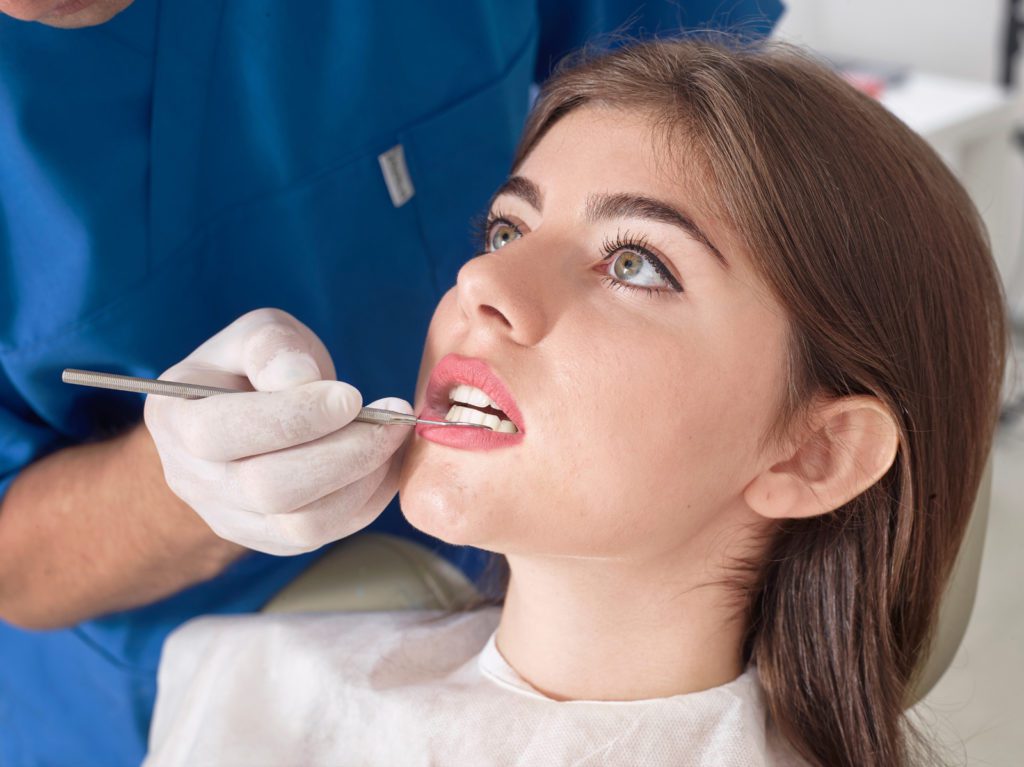
Dorset Dental Blogs Dorset Dental Blogs Taking Care Of Your Teeth For Life Regular visits to your nearest Scarborough dental clinic can seem excessive to some people. Many make the mistake of only visiting a dentist in an emergency. Cracked or broken teeth, painful toothaches, or even loose teeth often take priority over a general checkup. There are several reasons people neglect to take better care of their teeth with the help of a specialist. The inconvenience of having to schedule an appointment in your busy calendar, a limited budget, or even a fear of visiting the dentist can all play a role in your hesitation. With this article, we hope to change your mind and give you more insight into what to expect during a routine checkup. Why Regular Visits Are Essential Most of the time, emergency dental issues could have been avoided if the patient had booked an appointment long before their teeth deteriorated. Dentists use these checkups to assess your oral health, resolve decay, and note potential issues. Instead of waiting for cavities to grow larger by the day, eventually injuring your nerve, a dentist can fix them quickly. What To Expect From Your Visit You may be surprised to learn that routine checkups are less invasive than expected. Usually, dentists will use a mirror to assess the general health of your teeth. This can be followed up by x-rays if there is an area the dentist would like to have a closer look at. Lastly, we will take you through proper care advice and answer any of your concerns. If you have any serious issues, we will ask you to schedule another appointment to avoid them worsening. The cost of a regular checkup is much cheaper in comparison to emergency visits which can result in bills piling up long after you’ve had to extract a tooth. Additionally, if you have a phobia of going to the dentist, it is best to communicate this with your dentist. Professionals will always try to ease your discomfort and make it a more pleasant experience. We all only have one set of adult teeth; therefore, it’s important that we take care of them properly to keep them in good condition. Ready to make your next appointment with the best Scarborough dental clinic in your area? Contact us at Dorset Dental to learn more about rates and services. BOOK AN APPOINTMENT